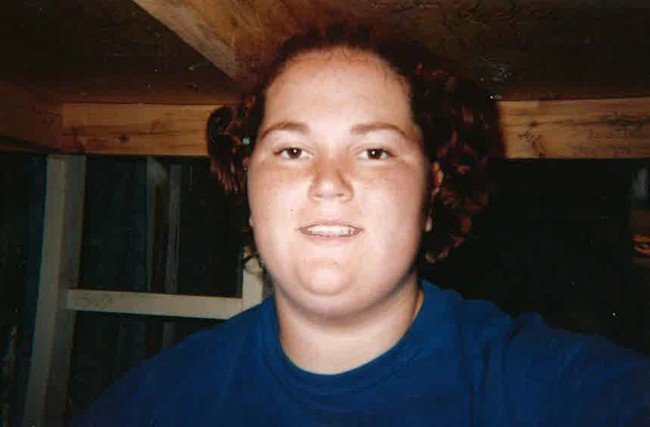TORONTO – The chief psychologist at the prison in which a teen inmate choked herself to death testified Tuesday that senior management bullied and intimidated staff as they struggled to cope with the desperate situation.

In her evidence at the Ashley Smith inquest, Cindy Lanigan said the deputy warden of the Grand Valley Institution, Joanna Pauley, badgered and denigrated underlings constantly.
“At the time, I called this a reign of terror,” Lanigan told the six women jurors.
“She was rude, she would yell. It was abuse, actually.”
From her segregation cell, Smith, 19, was running staff at Grand Valley in Kitchener, Ont., ragged with her constant tying of ligatures around her neck.
By early October 2007, just weeks before she choked herself to death, Smith was deeply depressed and suicidal, Lanigan said.
Yet, at Pauley’s urging, she altered her report recommendations on how best to keep the disturbed teen safe to more closely align with those of correctional managers who played down just how critical Smith’s situation was, she said.
Still, Lanigan said she felt powerless to push back against what she described as a “constant hammering.”
Pauley was a “very forceful individual” and Lanigan said she felt her job was at risk.
“I was threatened with being fired,” she said.
- ‘Summer of discontent’ coming over public service in-office order: unions
- N.S. couple felt they won ‘doctor lottery’ after years on wait-list. Now they’re back on it
- Family says infant killed in 401 crash leaves a ‘void that can never be filled’
- More than half of parents report burnout, U.S. study finds. What can be done?
The deputy warden once ordered her at 9 p.m. on a Friday to go back to the office to resend an email to include a forgotten attachment, Lanigan testified.
The psychologist said she and other staff felt constantly undermined and her professional confidence eroded by the incessant sniping from above.
“This was a paramilitary organization where you don’t go above your boss’s head because it would come back to you,” she said.
Asked by a juror what she would do differently now, Lanigan said, “I would probably stand up to the deputy warden more.”
Lanigan said she believed Pauley and Warden Cindy Berry were more concerned about making sure the prison seemed to be running smoothly to their superiors than dealing effectively with the frantic situation at cell level.
One part of that was minimizing the frequent incidents in which force was used against Smith – every cell entry was considered a use of force.
There was also the need to contain the hideous cost of dealing with Smith, who required almost 24-hour observation and frequent interventions to keep her alive.
“They (senior management) wanted to demonstrate Grand Valley had good staff that could manage these difficult cases,” Lanigan said.
Both Pauley and Berry are expected to testify at the inquest in the fall.
Smith, of Moncton, N.B., saw half dozen psychologists during her months at Grand Valley, but most sessions were done through the food slot of her cell door in presence of others.
It was, Lanigan agreed, far from an ideal therapeutic environment.
“I did my best to make competent assessments every day,” Lanigan testified.
The only response to Smith’s self-harming was to put a guard outside Smith’s cell, a situation unchanged in similar circumstances today, the inquest heard.
“We don’t have much choice,” Lanigan said.
Lanigan denied being at top-level meetings where the strategy was set ordering guards to stay out of Smith’s cell unless she was about to die.
Guards have testified they were told Smith’s issue was behavioural, not a question of poor mental health, that her self-harming was simple attention seeking that was not to be indulged.
Lanigan, however, said she believed everyone knew Smith was mentally disturbed.
“I don’t think they (guards) were under the impression she was just a bad girl.”



Comments